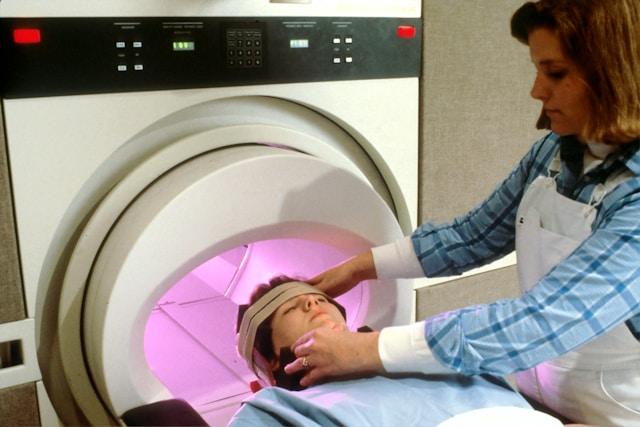-
Peripheral Nerve Pain: Identifying Symptoms & Treatment
Peripheral nerve pain, also known as peripheral neuropathy, is a common condition affecting millions worldwide with possible causes and underlying causes. This type of pain stems from damage to the peripheral nerves, leading to discomfort, numbness, and tingling sensations in various parts of the body. Understanding the underlying causes and effective management strategies for peripheral nerve pain is crucial for enhancing quality of life and overall well-being.
Key Takeaways
-
Identifying Symptoms: Pay attention to tingling, numbness, or sharp pain in your extremities as potential signs of peripheral nerve pain and consult health care if needed.
-
Seeking Medical Advice: Consult a healthcare professional if people in your area experience persistent or worsening symptoms to receive proper diagnosis and treatment.
-
Understanding Causes: Be aware that conditions like diabetes, infections, or injuries can lead to peripheral nerve pain.
-
Risk Factors Explored: Factors such as age, underlying health conditions, and repetitive motions can increase the risk of developing peripheral nerve pain.
-
Prevention Strategies: Maintain a healthy lifestyle, manage underlying conditions, and avoid repetitive movements to reduce the risk of peripheral nerve pain.
-
Managing Conditions: Follow treatment plans prescribed by healthcare providers, including medication, physical therapy, or lifestyle modifications to alleviate symptoms and improve quality of life.
Identifying Symptoms
Common Signs
Recognize early signs of peripheral neuropathy like numbness and tingling in hands and feet to identify the underlying cause. Be aware that muscle weakness and lack of coordination are potential indicators of an underlying cause. Look out for sensory abnormalities, such as extreme sensitivity to touch.
Recognizing Pain
Understand the different types of pain associated with peripheral neuropathy, including burning pain; tingling sensations. Recognize when pain is a symptom of nerve damage rather than temporary discomfort. Be vigilant about changes in pain intensity or frequency over time.
Neuropathy Indicators
Learn about the various indicators of peripheral neuropathy, including autonomic nerve symptoms like heat intolerance; sweating. Understand that symptoms can vary based on the type of nerves affected. Be aware of potential complications like skin injuries; infections due to loss of sensation.
Seeking Medical Advice

Doctor Consultation
Seek medical advice promptly upon noticing unusual symptoms like weakness or pain in extremities. Discuss your symptoms and medical history with a healthcare professional for accurate diagnosis. Following up with recommended tests and evaluations is crucial to determine the underlying cause of neuropathy.
Timing for Help
Act quickly if you experience unusual tingling, weakness, or pain in your hands or feet. Early intervention plays a vital role in managing symptoms and preventing further nerve damage. Do not delay seeking medical attention if you suspect peripheral neuropathy.
Professional Assessment
Obtain a thorough evaluation from a healthcare provider to diagnose peripheral neuropathy accurately. Consulting with specialists such as neurologists or pain management experts ensures a comprehensive assessment and treatment plan. It’s essential to follow up on diagnostic tests like nerve conduction studies or blood tests as recommended by healthcare professionals.
Understanding Causes
Potential Triggers
Peripheral nerve pain can be triggered by various factors, including traumatic injuries, infections, or metabolic issues. Lifestyle choices such as alcohol misuse or exposure to toxins can also contribute significantly to nerve damage. Moreover, medical conditions like diabetes or autoimmune diseases are known triggers for neuropathy.
-
Traumatic injuries
-
Infections
-
Metabolic issues
-
Alcohol misuse
-
Exposure to toxins
-
Diabetes
-
Autoimmune diseases
Neuropathy Origins
Peripheral neuropathy has diverse origins, ranging from inherited conditions to exposure to toxins. Diabetes stands out as a common cause of neuropathy due to its ability to cause nerve damage gradually. Understanding the impact of traumatic injuries or infections on peripheral nerve health is crucial in managing and preventing neuropathic pain.
-
Inherited conditions
-
Exposure to toxins
-
Diabetes-induced damage
-
Traumatic injuries’ effects
-
Infections’ influence
Risk Factors Explored
Lifestyle Influence
Living a healthy lifestyle plays a crucial role in preventing and managing peripheral nerve pain. Regular exercise supports nerve health by promoting circulation and reducing inflammation. A balanced diet rich in vitamins, minerals, and antioxidants can also aid in nerve function.
To prevent peripheral nerve pain, individuals should avoid activities that may cause nerve damage. Repetitive motions, especially in jobs that involve continuous typing or lifting heavy objects, can lead to nerve compression and injury. Exposure to toxins like pesticides or heavy metals should be minimized to protect nerve health.
Genetic Predisposition
Genetics can significantly influence the development of peripheral neuropathy. Certain inherited conditions increase the susceptibility to nerve damage, making individuals more prone to experiencing neuropathic symptoms. By understanding the genetic predisposition to neuropathy, healthcare providers can tailor treatment plans accordingly.
Discussing family history with medical professionals is essential for assessing the impact of genetic factors on peripheral nerve pain. Inherited neuropathies such as Charcot-Marie-Tooth disease highlight the significance of genetic predisposition in nerve disorders. By identifying these genetic links, healthcare providers can offer personalized care and management strategies.
Complications Awareness
Health Impacts
Peripheral nerve pain can have broader health impacts than just sensory symptoms. It can affect various body functions, including digestion and urination. The nerves responsible for these functions may be compromised due to neuropathy.
Individuals with peripheral neuropathy are at risk of complications like falls or infections. Weakness and loss of sensation in the extremities can lead to accidents such as falls, while reduced ability to feel injuries increases susceptibility to infections.
Long-term Effects
Untreated peripheral neuropathy can have significant long-term effects on nerve health. Chronic neuropathy may result in complications such as burns or wounds due to reduced sensation in affected areas. These issues can lead to severe health concerns if left unmanaged.
It is crucial to be proactive in managing neuropathy to prevent long-term consequences on quality of life. Regular monitoring, appropriate medication, lifestyle modifications, and seeking medical advice are essential steps in controlling the progression of peripheral nerve pain.
Prevention Strategies
Healthy Choices
Embrace healthy lifestyle choices to prevent peripheral nerve pain. Engage in regular physical activity and maintain a balanced diet. Consider incorporating foods rich in vitamins and minerals essential for nerve function.
Prioritize self-care practices to promote overall well-being and reduce the risk of nerve damage. Get an adequate amount of sleep each night to support nerve regeneration. Manage stress through relaxation techniques like deep breathing or meditation.
Make informed decisions about diet and exercise to support optimal nerve health. Consume a variety of nutrient-rich foods, including fruits, vegetables, whole grains, and lean proteins. Stay hydrated by drinking plenty of water throughout the day.
Risk Minimization
Take proactive steps to minimize risk factors linked to peripheral neuropathy development. If you have diabetes, maintain healthy blood sugar levels through medication adherence and lifestyle modifications. Attend regular check-ups with your healthcare provider.
Address underlying medical conditions that can increase the likelihood of nerve damage. Seek appropriate treatment for conditions such as autoimmune disorders or infections that may impact nerve function. Follow your healthcare provider’s recommendations for managing these conditions effectively.
Be vigilant in reducing exposure to toxins or repetitive motions that can negatively affect nerve health. Wear protective gear when handling chemicals or working with vibrating tools to minimize potential harm. Practice proper ergonomics at workstations to reduce strain on nerves and muscles.
Managing Conditions
Treatment Options
Peripheral nerve pain, also known as peripheral neuropathy, can be managed through various treatment options. Medication prescribed by healthcare providers can help alleviate pain and improve nerve function. Physical therapy is another effective approach to enhance mobility and reduce discomfort. alternative therapies such as acupuncture or massage may provide relief for some individuals. In severe cases of neuropathy, interventions like nerve blocks or surgical procedures might be necessary to address the underlying issues causing the pain.
-
Medication for pain relief
-
Physical therapy to improve mobility
-
Alternative therapies like acupuncture
Lifestyle Adjustments
Adjusting one’s lifestyle is crucial in managing peripheral neuropathy symptoms effectively. Making necessary lifestyle adjustments can help accommodate changes in sensory or motor function caused by the condition. Adapting daily routines to address limitations in coordination or muscle strength is essential for maintaining independence and quality of life. Seeking support from occupational therapists can provide valuable insights on how to navigate daily challenges and optimize functionality. Utilizing assistive devices such as orthotic braces or walkers can further enhance mobility and overall well-being.
-
Make lifestyle adjustments for sensory changes
-
Adapt daily routines for improved coordination
-
Seek support from occupational therapists
Making Healthy Choices
Diet and Exercise
Maintaining a balanced diet is crucial for managing peripheral nerve pain. Ensure your meals are rich in nutrients like B vitamins, which support nerve health. Regular exercise plays a vital role in improving circulation and preserving muscle strength. Consulting healthcare providers can offer personalized recommendations tailored to your specific needs.
-
Consume foods high in B vitamins
-
Engage in regular physical activity
-
Seek professional advice for customized dietary and exercise plans
Stress Management
Implementing effective stress management techniques is essential to alleviate the impact of psychological stress on neuropathy symptoms. Explore relaxation practices such as meditation or yoga to enhance overall well-being. Seeking counseling or joining support groups can help address the emotional challenges associated with coping with neuropathy.
-
Practice stress-relief methods like meditation
-
Consider joining support groups for emotional assistance
-
Incorporate relaxation techniques into your daily routine
More Information
When dealing with peripheral nerve pain, it’s essential to seek further reading to deepen your understanding of the condition.
Further Reading
Explore additional resources on peripheral neuropathy for comprehensive insights and support. Access reputable websites, books, or medical journals to stay informed about the latest research and developments in neuropathy management. Engaging with these resources can provide valuable knowledge for individuals experiencing peripheral nerve pain.
Support Resources are crucial for individuals navigating the challenges of living with peripheral nerve pain. Seek out neuropathy support groups or online forums to connect with others facing similar struggles. These communities offer a platform for sharing experiences, tips, and emotional support, fostering a sense of belonging and understanding among individuals dealing with neuropathy.
Connecting with healthcare professionals specializing in neuropathy care is vital for receiving guidance and assistance tailored to your specific needs. These professionals can offer personalized treatment plans, symptom management strategies, and ongoing monitoring to help you effectively manage peripheral nerve pain.
Utilize helplines or counseling services to access emotional support and coping strategies related to living with neuropathy. Dealing with chronic pain can take a toll on one’s mental health, making it crucial to prioritize emotional well-being alongside physical symptoms. Seeking professional help can equip individuals with the tools needed to navigate the emotional aspects of living with peripheral nerve pain.
Closing Thoughts
You now have a deeper understanding of peripheral nerve pain, its symptoms, causes, and management strategies. By recognizing the signs early on and seeking medical advice promptly, you can effectively address this condition. Remember that being proactive in your approach to managing peripheral nerve pain can lead to better outcomes and improved quality of life. Stay informed, make healthy choices, and prioritize your well-being to minimize the impact of this condition on your daily life.
Take charge of your health by implementing the prevention strategies discussed and incorporating them into your lifestyle. Your well-being is essential, so don’t hesitate to reach out to healthcare professionals if you experience any concerning symptoms. Stay informed, stay proactive, and take the necessary steps to manage peripheral nerve pain effectively.
Frequently Asked Questions
What are the common symptoms of peripheral nerve pain?
Peripheral nerve pain may present as tingling, numbness, burning sensations, or sharp pains in the affected areas. Muscle weakness and sensitivity to touch can also occur.
How can I prevent peripheral nerve pain?
Maintain a healthy weight, exercise regularly, avoid repetitive motions that strain nerves, ensure proper ergonomics at workstations, and manage underlying conditions like diabetes to reduce the risk of developing peripheral nerve pain.
When should I seek medical advice for peripheral nerve pain, possible causes and underlying causes?
Consult a healthcare professional if you experience persistent or worsening symptoms like chronic pain, muscle weakness, or loss of sensation. Early diagnosis and treatment can help prevent complications and improve outcomes.
What are the common causes of peripheral nerve pain?
Peripheral nerve pain can be caused by factors such as injury, diabetes, infections, autoimmune diseases, vitamin deficiencies, and certain medications. Identifying the root cause is crucial for effective management and treatment.
How can I manage peripheral nerve pain effectively?
Treatment options for peripheral nerve pain may include medications, physical therapy, lifestyle modifications, and alternative therapies like acupuncture. A multidisciplinary approach tailored to individual needs can help alleviate symptoms and improve quality of life.






















